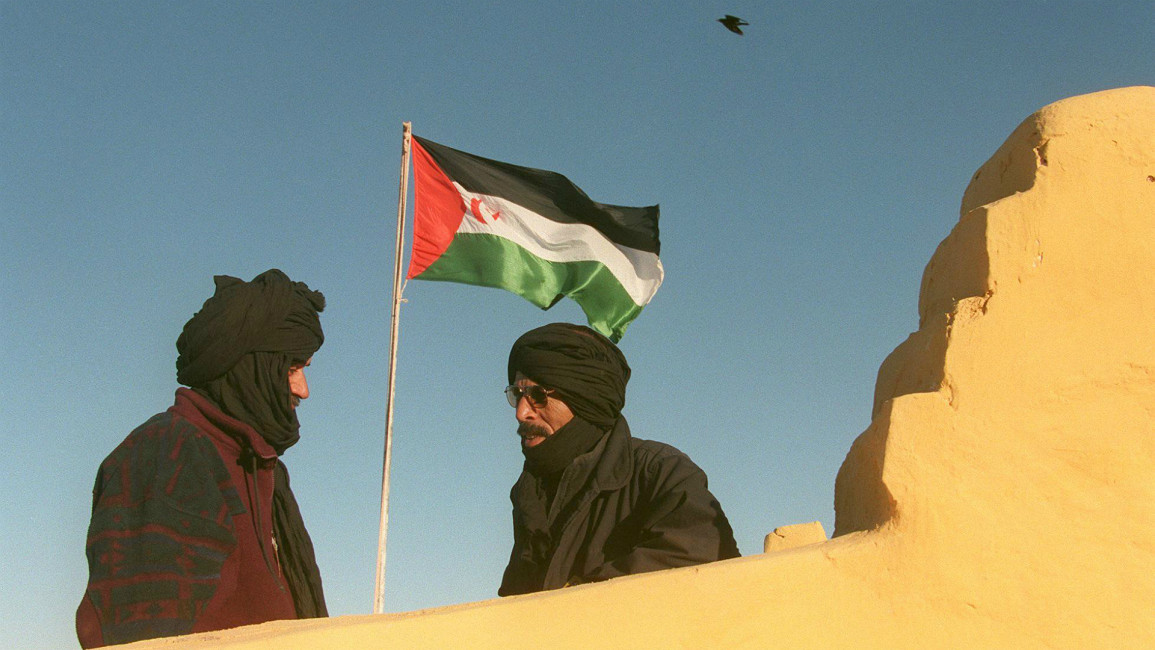Polisario claims responsibility over four explosions in Western Sahara, killing one
The Polisario Front, a separatist movement in Moroccan-controlled Western Sahara, has claimed responsibility for several explosions in Western Sahara which killed at least one person, signalling a potential armed conflict in one of Africa's most protracted territorial disputes.
"The attacks of the SPLA (the Sahrawi People's Liberation Army) targeting the entrenchments of the Moroccan occupation forces continue, inflicting heavy losses in lives and equipment along the wall of shame," said the Polisario Front in a press release shared by Sahara Press Service.
Late on Saturday night, on 28 October, four explosions struck Moroccan-controlled Smara (Semara) in three neighbourhoods, including the industrial district of the city., killing one and injuring three other people, two of whom are in critical condition.
Unverified Images on social media show a partially collapsed roof of an empty and some metal debris.
Morocco's public prosecutor opened Sunday an investigation into "the source and nature of the explosive projectiles," according to Moroccao's state news agency MAP. It did not articulate further the identities of the victims.
Rabat has yet to comment on Polisario's claims of responsibility officially.
Smara is the nearest major city to Algeria, the rear base of the Polisario Front group that's sought independence for the former Spanish colony for almost half a century.
Breaking the ceasefire before the UN vote
The proclaimed attack occurred a day before the critical UN vote on the presence of the peace forces in the territory.
"If the Polisario's responsibility becomes clear, it will have committed a fatal mistake. (...) as the Hassani proverb says: the action is bad, and the timing is worse," Mustafa Salma Ould Sidi Mouloud, the former leading Sahrawi activist in the separatist Polisario Front, wrote on Facebook.
Moroccan commentators deemed the attack a disruption to the peace process in the disputed territory.
Founded in 1973, The Polisario Front, the Saharawis' self-proclaimed representative, grappled for decades with Morocco over the sovereignty of Western Sahara, a sovereignty they both claim but the UN recognises neither.
They fought a 16-year-long guerrilla war that ended in 1991 when the UN announced a ceasefire in the province and sent its peacekeeping forces to Laayoune, the biggest city in the disputed territory, to monitor a referendum on its status.
The vote was set for 1992 but was aborted when Morocco refused to accept any vote that allowed for the independence of the territory, saying that only "autonomy" was on the table - a plan the UN supports, but the Polisario and its historical ally Algeria refuse.
Moroccan media claims Iran's responsibility
In 2020, The leader of the Polisario Front, Ibrahim Ghali, said the group had ended a 29-year ceasefire with Morocco to resume its armed struggle following a border confrontation over the Guerguerat crossing.
Morocco says it fired on Polisario fighters in retaliation for what Rabat called their days-long blockade of the road, holding up some 200 trucks and threatening trade with Mauritania.
Polisario, in turn, said, "The locals were peacefully protesting against Morocco's presence in the area."
After the incident, both parties resumed talks and meetings with the UN officials, and the security situation returned to normal despite the Front's announcement of the end of the ceasefire.
The weekend's explosion reignited the possibility of a new armed conflict in the region, which, if it happened, might cost all parties dearly.
The Algerian army, Plosario's first ally, is the strongest in the Maghreb region. Meanwhile, Morocco has increased its 2024 military budget by 4.1%.
An article published on the most significant news website in Morocco, Hespress, suggests the possibility of Iran being behind the weekend's attack.
"The incident took place a few days after the threats made by the Iranian Foreign Minister, through an American media platform, in which he vowed to open new fronts against the United States of America and its allies if it continued its support for Israel (during Gaza war)," read the article published on Sunday 29, October.
Morocco cut ties with Iran in 2018, accusing Tehran of sponsoring military exercises of the Polisario with Tehran-backed Hezbollah proxy. Tehran and Hezbollah have denied the accusations.


